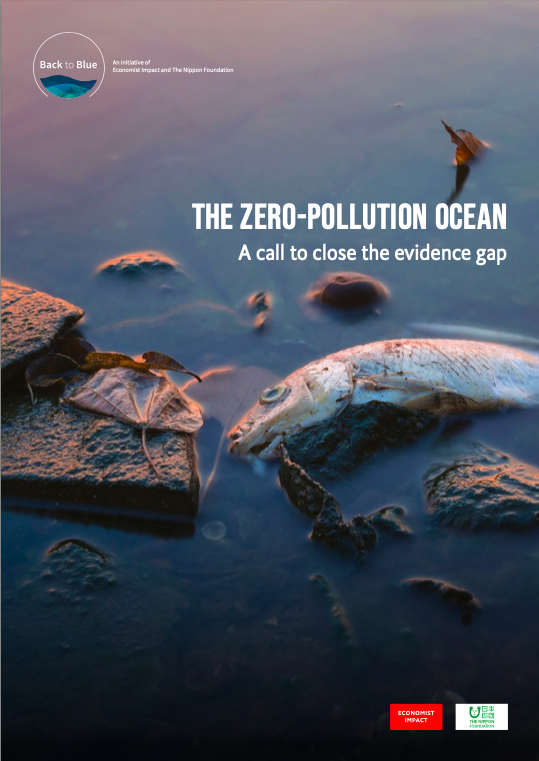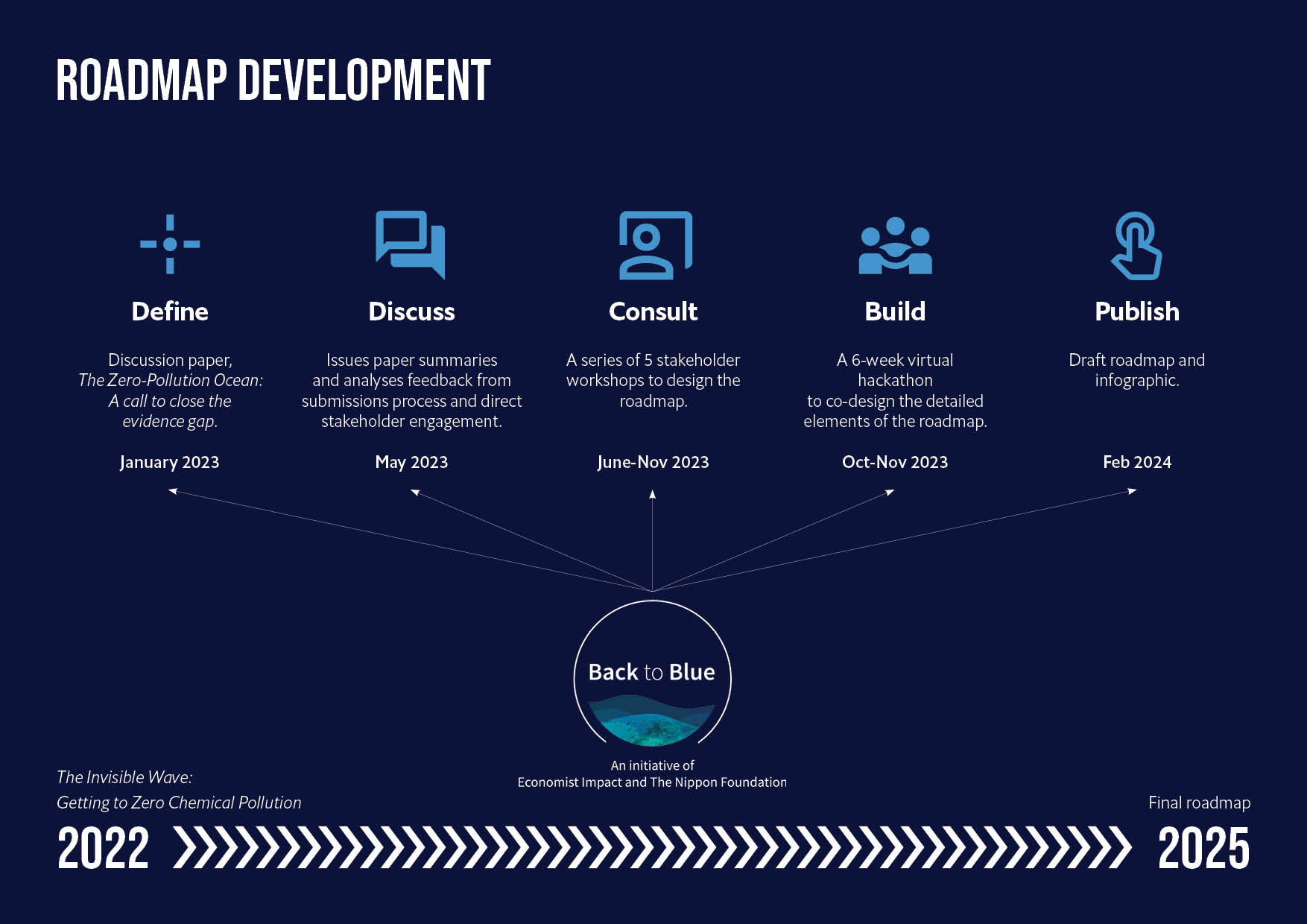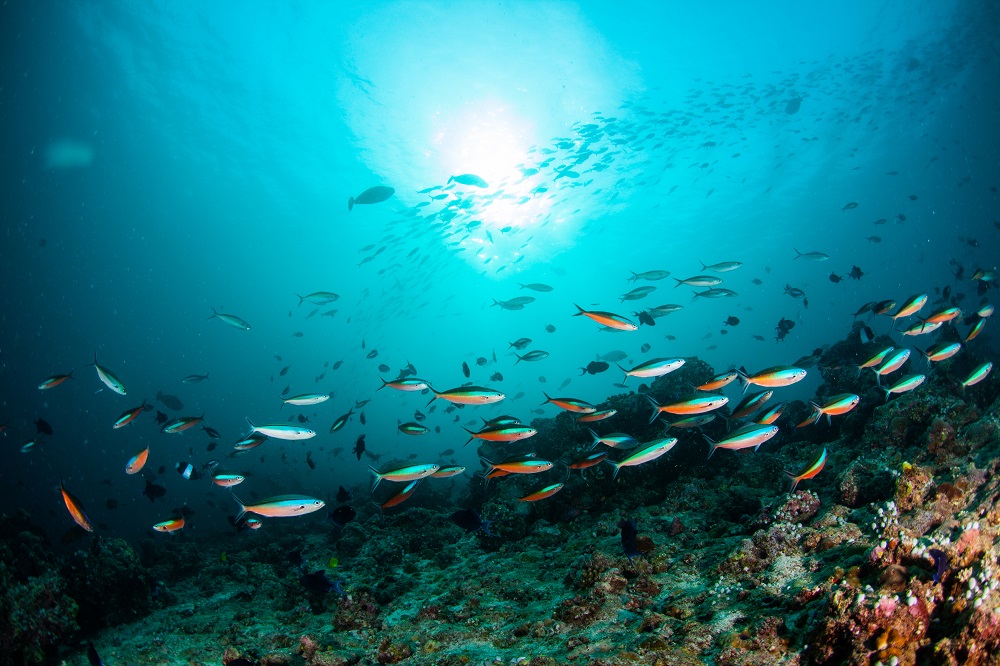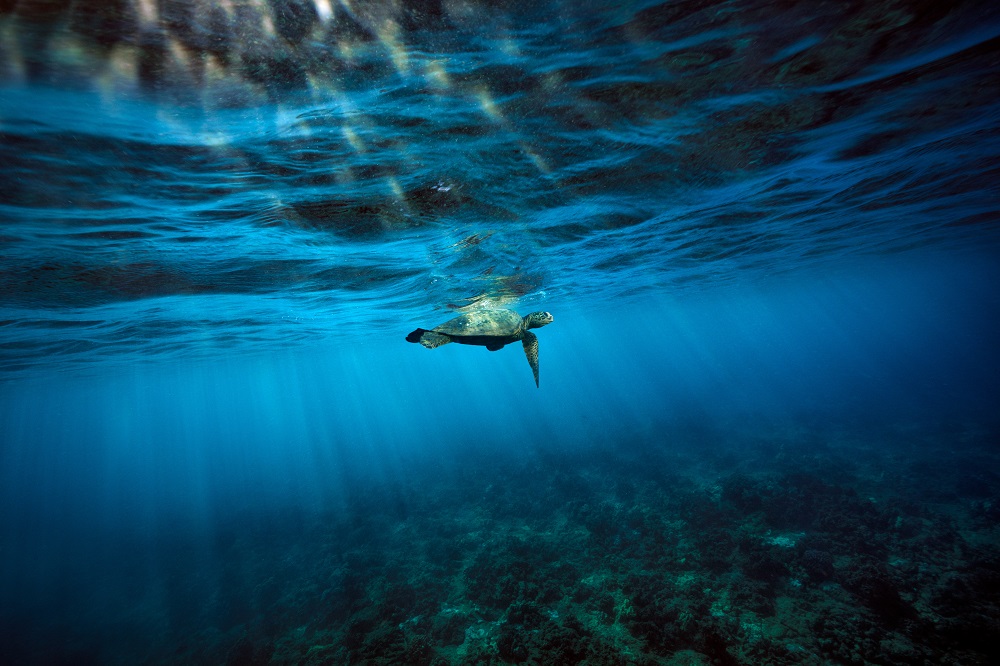

Back to Blue events
Other Ocean Events
Back to Blue will be participating in
the
following events:

WHY SHOULD WE CARE ABOUT THE OCEAN POLLUTION DATA GAP?
Jan 2023 | Reading time: none
Scientists believe that pollution severely affects ocean health. Yet, with very little data about the scale and scope of marine pollution, it’s impossible to know for sure. The first step to zero-pollution ocean: close the evidence gap.
THE CRITICAL NEED FOR MARINE POLLUTION DATA
Plastic pollution garners headlines, but a plethora of other chemicals and contaminants—mostly unseen—are likely doing as much, if not greater, harm to ocean health. On this score, we know frighteningly little: There has been no comprehensive global effort to harmonise, collate, analyse and interpret data to build a comprehensive picture of marine pollution.
A zero-pollution ocean will only be possible if policymakers, business leaders and investors have access to sufficient evidence to evaluate the scope, scale and impact of marine pollution and to take action. A coordinated global response will first
require building a thorough picture of the existing data and an understanding of the science needed to fill the evidence gaps.
Back to Blue is calling on scientists, research funders, policymakers, investors and business leaders to join the conversation about how to spearhead a coordinated global response to marine pollution and to co-design a roadmap by 2025 to close the marine pollution data gap.
Back to Blue’s recommendations
That marine pollution—beyond plastic—be central to the agenda at the 2025 UN Ocean Conference and other major meetings, such as the United Nations Environment Assembly in 2024, with a view to raising awareness and spurring action among policymakers.
That the UN Ocean Decade framework be used to foster effective collaboration among the various agencies that collect and hold data and other resources relevant to understanding marine pollution, including (but not limited to) UN agencies, national government agencies, universities, scientific organisations and the private sector.
That a strategic plan be developed by 2025, setting out the pathway to building a comprehensive global understanding of marine pollution. This process must incorporate the widest possible range of actors from the UN system, national governments, scientific agencies, universities, NGOs and the private sector, including the technology industry.
That a diverse group of projects and initiatives—including Back to Blue—work collaboratively with scientists to raise awareness and use existing marine pollution data to inform policymakers, business leaders and the broader public.
OUR PLAN TO TACKLE THE MARINE POLLUTION DATA GAP:
DEFINE: A short discussion paper defining the marine pollution data gap

The Zero-Pollution Ocean: A call to close the evidence gap
A zero-pollution ocean will only be possible if policymakers, business leaders and investors have access to sufficient evidence to evaluate the scope, scale and impact of marine pollution and to take action. Download this short discussion paper to read our recommendations.
DISCUSS: Read our summary of what steps the experts recommend to close the gap

CLOSING THE MARINE POLLUTION DATA GAP: A ROADMAP IN THE MAKING
Developed following an extensive expert stakeholder consultation process, this issues paper examines the key questions that must be addressed to develop an effective and workable roadmap to close the marine pollution data gap.
CONSULT AND BUILD: An inclusive co-design process
We can’t do this alone. Back to Blue’s mandate is to catalyse action; a wide group of stakeholders must collaborate to implement the roadmap.
Back to Blue is now embarking on a targeted consultation and co-design process. We call on scientists, policymakers, business leaders, and investors to join our hackathon to co-design a roadmap to close the marine pollution data gap.
PUBLISH: The Zero-Pollution Ocean Roadmap
Using the findings of these events, Back to Blue will produce a draft Zero-Pollution Ocean Roadmap that will identify how key stakeholders can spearhead a coordinated global response to marine pollution and close the marine pollution data gap.
The draft roadmap, to be released in early 2024, will include an overview infographic, report and set of practical recommendations. The purpose of the roadmap will be to galvanise UN bodies, policymakers, NGOs and businesses to close the marine pollution data gap.
EXPLORE MORE CONTENT ABOUT THE OCEAN
Back to Blue is an initiative of Economist Impact and The Nippon Foundation
Back to Blue explores evidence-based approaches and solutions to the pressing issues faced by the ocean, to restoring ocean health and promoting sustainability. Sign up to our monthly Back to Blue newsletter to keep updated with the latest news, research and events from Back to Blue and Economist Impact.
The Economist Group is a global organisation and operates a strict privacy policy around the world.
Please see our privacy policy here.
THANK YOU
Thank you for your interest in Back to Blue, please feel free to explore our content.
CONTACT THE BACK TO BLUE TEAM
If you would like to co-design the Back to Blue roadmap or have feedback on content, events, editorial or media-related feedback, please fill out the form below. Thank you.
The Economist Group is a global organisation and operates a strict privacy policy around the world.
Please see our privacy policy here.
Back to Blue is an initiative of Economist Impact and The Nippon Foundation, two organisations that share a common understanding of the need to improve evidence-based approaches and solutions to the pressing issues faced by the ocean, and to restoring ocean health and promoting sustainability


 World Ocean Summit & Expo
2025
World Ocean Summit & Expo
2025 UNOC
UNOC Sewage and wastewater pollution 101
Sewage and wastewater pollution 101 Slowing
the chemical tide: safeguarding human and ocean health amid
chemical pollution
Slowing
the chemical tide: safeguarding human and ocean health amid
chemical pollution Hazardous chemicals in plastics - the discussions at INC
Hazardous chemicals in plastics - the discussions at INC










